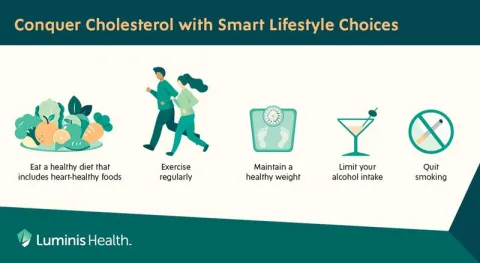How Luminis Health Support Services Can Help You
You're not just a patient at Luminis Health — you're a person. And we know what you're going through isn't easy. We offer a range of services to help you and your family through this challenging time. The goal of our support services are to optimize health, quality of life, and clinical outcomes before, during, and beyond cancer treatment.
Our support services include:
A nurse navigator provides guidance, support and direction. They are a comforting presence and your “go-to" contact, from diagnosis through treatment and beyond. Our nurse navigators are registered nurses with cancer-specific knowledge.
These professionals have a complete understanding of the system and can help advocate for you during medical decisions. Nurse navigators can also help coordinate multiple appointments and follow-up visits, decode complex medical information and address financial issues.
Many people with cancer find comfort in talking with a spiritual advisor. Our spiritual care team includes ordained clergy from many faith traditions, highly trained in pastoral care.
Members of our spiritual care team can provide emotional comfort and spiritual support. They can also serve as a resource during times surrounding end-of-life care or the death of a loved one.
Palliative care is also known as comfort care. The focus is on relieving suffering and improving the quality of life for patients and their families while getting treatment for cancer. The palliative care team may include physicians, nurse practitioners, social workers and chaplains.
The palliative care team can help control difficult symptoms and set realistic goals for care. They can also help communicate a loved one's prognosis, facilitate difficult family meetings and manage end-of-life situations.
Eating right is especially important when you have cancer. Good nutrition can help you heal from surgery and support your body during radiation and chemotherapy. It can also boost your immune system when you need it most.
Our licensed dietitians work with you to understand your body's nutritional requirements during treatment. They find alternative foods and supplements if you can't eat the foods you could before your cancer diagnosis.
Our oncology rehabilitation program includes a comprehensive team to meet your needs. Our team includes physical therapists, occupational therapists, speech language pathologists, nurses, nutritionists and social workers, all of whom focus on improving your quality of life.
Even when your doctors say you're cancer free or in remission, you may still have worries and concerns. We offer programs and support services to help with issues such as altered body image, fear of recurrence, infertility and limited mobility.
We offer an individualized Treatment Summary/Survivorship Care Plan (TS/SCP). It's an integrative model where survivors continue to see their primary oncologist for long-term follow-up.
Some types of cancer are passed through the genes in your family. If you were diagnosed with cancer at a young age, or there are multiple instances of the same type of cancer in your family, you may be a candidate for genetic counseling.
Our genetic counselors can talk about options for lowering and managing your risk of cancer and whether genetic testing is appropriate for you or other family members.
Our oncology social workers provide counseling and other services at no additional cost to you. These services may include practical problem solving, financial assistance information and referrals to community resources.
Insurance coverage and payment options can be confusing. And the last thing you should be worried about when undergoing cancer treatment is how to pay for it.
Our team of financial counselors can help you get answers to your questions about payment options, financial help and other billing questions. Their goal is to ease the burden of financial worry. Oncology social workers also direct patients to additional financial services that meet their individual needs.
Luminis Health offers a variety of classes, support groups and other resources, led by our health care professionals. Topics range from quitting smoking to a pre-surgical orientation for breast cancer patients to cancer survivorship.
We also offer support groups for specific types of cancer, including lung, prostate, and head and neck cancer.



